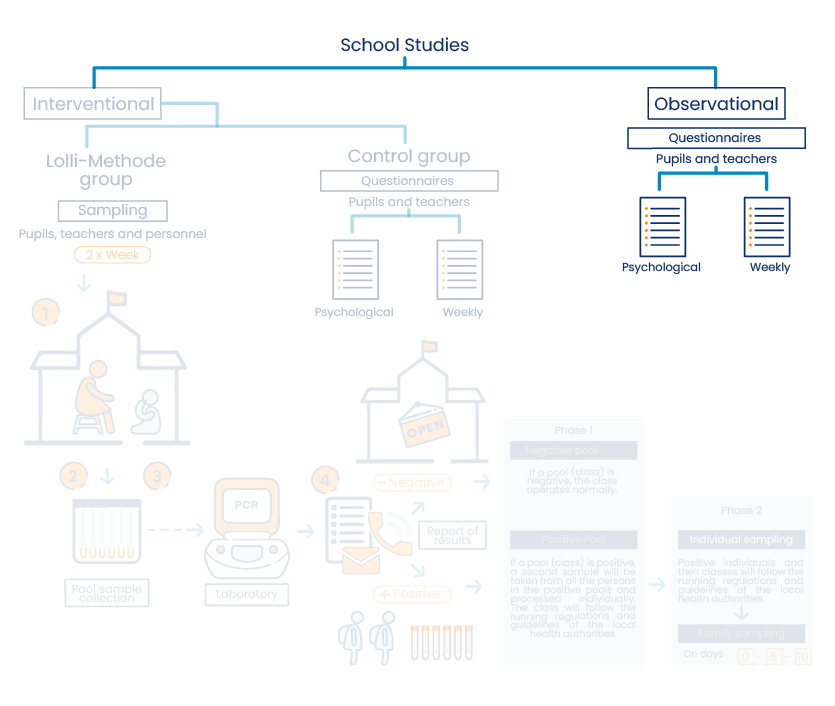THE OBSERVATIONAL EuCARE SCHOOLS STUDY
The EuCARE SCHOOLS observational study was a study of the EuCARE project.
‘EuCARE: European Cohorts of Patients and Schools to Advance Response to Epidemics’ is a project funded by the European Commission under ‘Horizon Europe’ to combat SARS-COVID-19.
The observational study EuCARE SCHOOLS aimed to assess SARS-COV-2 infection in schools and to investigate the effectiveness of prevention measures and the psychological dimension of pupils and teachers.
WHY WAS IT IMPORTANT?
The COVID-19 epidemic has had a tremendous impact on schools and was still affecting them.
The World Health Organization has repeatedly pointed out that the largest school interruption in history, due to COVID-19 measures, must not deprive children and young people of their education and development.
Balanced choices were necessary to minimize the infectious risk while reducing the damages deriving from reduced educational offers and socialization times. In order to make informed choices, it was necessary to study in real life and on a large and various sample what the infectious risks were in schools as well as the damages associated with the different COVID-19 measures. Wide participation in the study allowed us to expand our knowledge on this crucial issue and support informed choices.

OBJECTIVES OF THE STUDY
• To study the SARS-COV-2 contagions in schools and to compare them in different waves of the pandemic.
• To evaluate the psychological status of pupils during coronavirus pandemics: negative and positive feelings during confinement, worries, and expectations about school resumption evaluated by standardised questionnaires.
• To evaluate different preventive measures adopted in different classrooms taking into account variants and vaccination (preventive measures include: different distances between desks, wearing masks, preventive measures during lunchtime, use of bubbles, extra-scholar activities).
• To study social distancing and mobility practices changes along with the pandemic and potential association with the incidence of the infection.
WHO PARTICIPATED?
Kindergartens, nursery, primary and secondary schools were invited to participate.
All pupils, teachers and non teaching staff of the invited schools could participate in the study.
HOW DID THE STUDY WORKED?
The study “observed” the schools for different periods.
During these periods, pupils, families, and teachers were asked to fill in a few periodic questionnaires. Information about positive people, vaccination, mobility, and psychological status was collected.
Data was analysed by statistical/epidemiological methods and by advanced artificial intelligence methods.
At the end of the study, each school received a specific report on the results of the “psychological” study in the school itself.
Participation was on a voluntary basis. Participants could withdraw their consent to participate at any moment.

